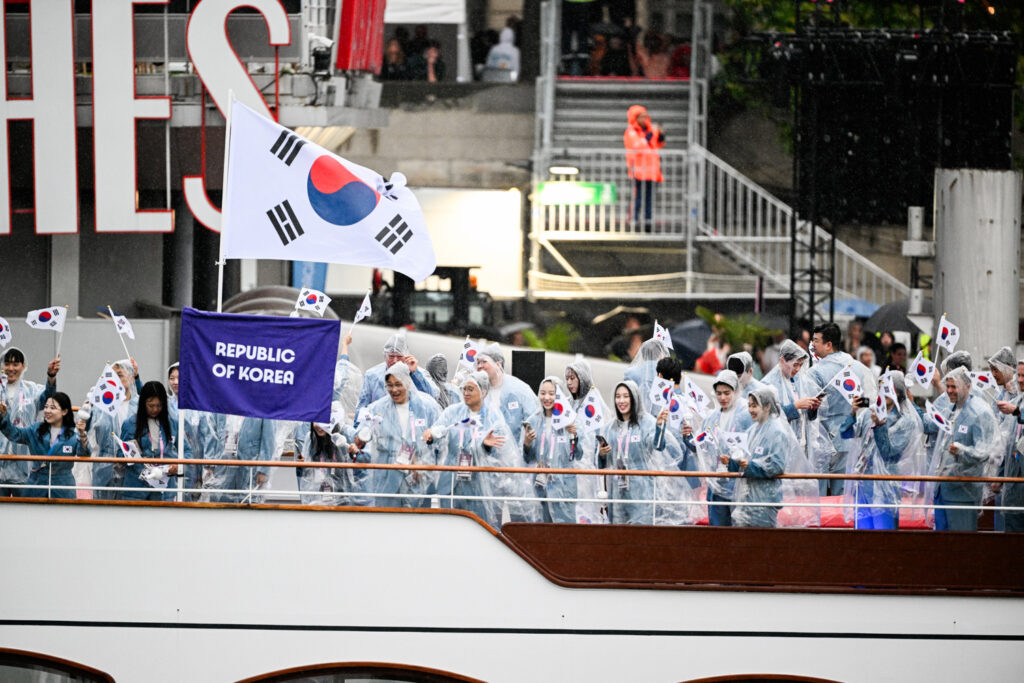South Korea lodged a protest following its athletes’ mistaken introduction as North Koreans during the opening ceremony of the Paris Olympics, leading the International Olympic Committee (IOC) to apologise.
The South Korean team arrived on a boat on the Seine as the 48th participating nation. Presenters wrongly introduced them as “République populaire démocratique de Corée”, or “Democratic People’s Republic of Korea” – North Korea’s official name – in both French and English.
South Korea’s Ministry of Sports “regrets the announcement at the Olympic opening ceremony… where the South Korean delegation was presented as the North Korean team,” a statement read.
Jang Mi-ran, Deputy Minister of Sports and 2008 Olympic weightlifting champion, requested a meeting with Thomas Bach, IOC President, to discuss the matter. The Ministry of Sports asked the Ministry of Foreign Affairs to “firmly protest against the French party” over the issue.
The South Korean National Olympic Committee plans to meet with the Paris Olympic Organisation Committee and the IOC to voice its concerns, request preventative measures, and send an official protest letter on behalf of its delegation head, the Ministry of Sports stated.
“We deeply apologise for the mistake that occurred during the introduction of the South Korean team during the opening ceremony broadcast,” the IOC posted on social media in Korean.
Related News
- Trains still disrupted on French rail network after sabotage
- Paris Olympics: An opening ceremony like no other
During the ceremony, North Korea was correctly introduced by its official name. Technically, South Korea is still at war with North Korea, following a conflict from 1950 to 1953 that ended with an armistice, not a peace treaty.
Relations between the two nations are at a low point, as Pyongyang strengthens its military ties with Russia and sends numerous waste-filled balloons towards the South.
In response, Seoul’s military blasts K-pop and anti-Kim Jong Un messages through loudspeakers across the border and has resumed live-fire drills on the border islands and near the demilitarized zone dividing the Korean peninsula.

